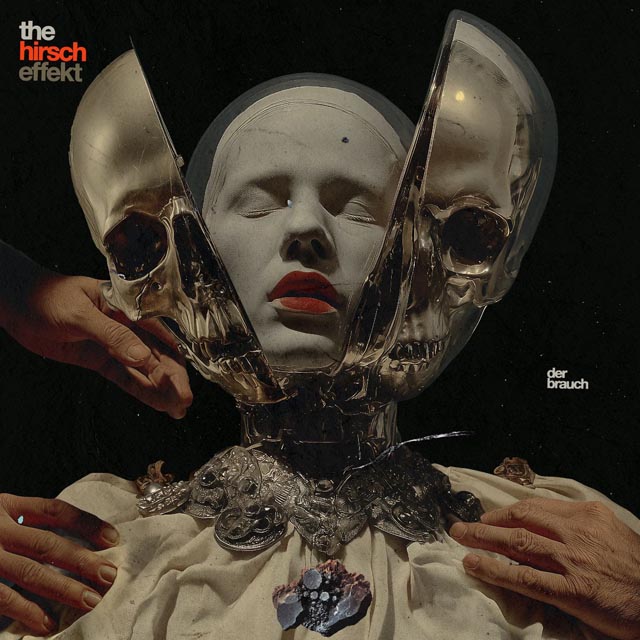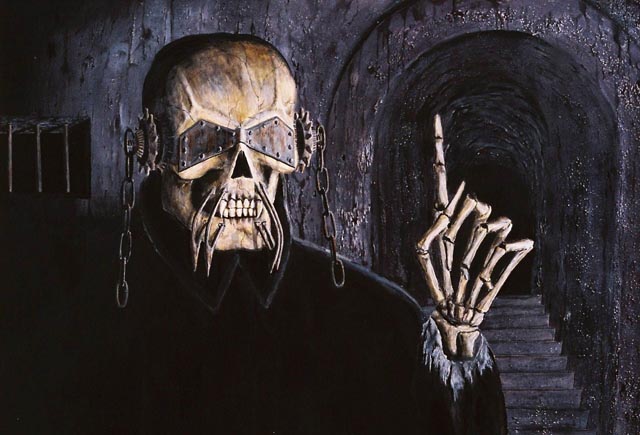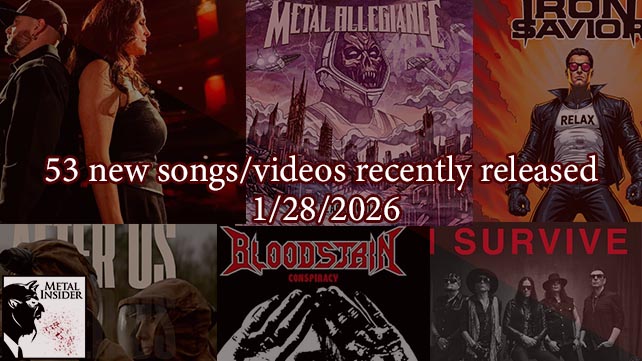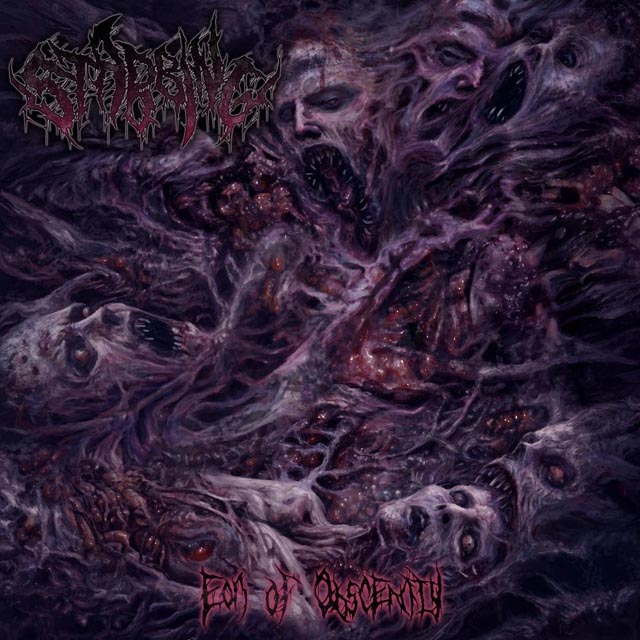
Whether you hate them or love them for it, Metallica are one of the biggest risk takers in metal. People have been disappointed with them from things ranging from 2003’s St. Anger to cutting their hair and going commercial with 1991’s Black Album, or thinking they went pop when collaborated with Lady Gaga during the Grammy’s. Speaking of pop, last month the legends collided with another legend Iggy Pop during a few shows in Mexico City. Steffan Chirazi, editor of Metallica’s So What! published an interview with Lars Ulrich and Pop discussing the Mexico City dates, metal and working with the late Lou Reed.
Chirazi asked Pop his opinion on what is a good band:
“The obvious way to say it would be it’s about the live show. It’s about what you can do live. I saw them [Metallica] play the Whiskey doing all Lemmy songs, you know, and it was really good. It sounded really bloody good. And then I saw them do [Bob] Seger at a ballroom called Roseland; it was wonderful, you know, big bands used to play there. The musicians union was upstairs until they closed it. And with the Seger, I thought that was really hard to do because you were in Manhattan, nobody really likes Bob Seger in Manhattan. So, everybody would just sort of stand there like this. And they played the Seger and they played it well, and then you played your own, came up for an encore and did your own shit. And without a largeness, and it really hit the people in the room, and you saw the people. So a band should swing, because if you’re in the room with other people and your band doesn’t swing, it’s embarrassing for them and it’s embarrassing for you. And everybody, you know? So that’s it. It’s a swinging band, and it’s got a lot of attention to detail, there’s a lot of work has gone into it. So that’s what I would say.”
Ulrich was flattered by Pop’s thoughts on Metallica and he asked:
“LU: Let me ask you, and I appreciate the nice words, I’m fascinated by music lineage and music history. So in your travels through the last three or four decades, what are some of the bands that have turned you on? What are some of the bands that have made an impact on you over the years?”
IP: Whoa, whoa. You know, I was lucky enough that when I started out, I was the opening act at the Grand Ballroom in the ’60s, and I opened for Cream. The stage was this knee high, tiny… and a tiny dressing room for the opening act and a slightly less tiny [dressing room] for the stars. So I opened for them, I opened for The Who in that same ballroom. I saw Jimi Hendrix play in a converted bowling alley in Ann Arbor, Michigan with the suit, with the eyes, with Mitch Mitchell, Noel Redding. So it was really that era. I saw Van Morrison’s Astral Weeks band at the Troubadour in LA, and Van had… you know, Van’s surly. So he has this one thing, his stage move. He’ll pick up a bar chair and wave it over his head like he’s gonna throw it at somebody, and that’s his big move, so he did that, you know. And that was another different kind of “good band.” They all looked like – you know, there’s a certain kinda English musician that they look a little ill?”
Later in the interview, Chirazi asked both Pop and Ulrich’s experience with Lou Reed. Ulrich and Pop went into full detail about the Lulu project including Reed’s hurt feelings from the negative response of the project.
“IP: I enjoyed that record you did with him.
LU: Yeah, so did we.
IP: A lot of nice riffs on that and he’s just telling his stories.
LU: It was the 25th anniversary of the Rock and Roll Hall of Fame, and Jann Wenner [Rolling Stone editor and publisher] threw this big celebration at Madison Square Garden, and his idea was to have a few bands anchor some segments, so he had Springsteen anchor a segment with some different people, and U2 anchor a segment, and he asked us to anchor a segment, which we were very flattered and pretty humbled by. We ended up doing a few songs with Ray Davies, a couple songs with Ozzy Osbourne, and then Lou. Lou showed up at rehearsal, this is about two days before, and we’re in a nice comfortable New York rehearsal space, and Lou walks in literally with dark clouds, and thunder and lightning over his head. He was pissed off! All “This is not right,” and “What the fuck?” and all this type of stuff. And we were like, “Well, should we do this, should we do this? Should we do a medley?” He said, “I don’t fucking do medleys.”
IP: [Grinning] Oh, hahahahahahaha.
LU: You know, the gauntlet’s now thrown down. And then Lou and I went off in the corner of the room and had a nice 10-15 minute chat about a few things, and then we sort of found some common threads. From there on he was fine. I think he had kind of a defense mechanism that was always ‘on’ to keep people at a distance, and you had to sort of break through that. And once you broke through that, then it was cool. But it was like a test. We ended up playing two or three songs, and it was fucking magic. And when we did it at Madison Square Garden in front of not just the audience but also the peers, you know, all the other bands, he was so into it. As we walked out of the bowels of Madison Square Garden and walked our separate ways, he was like, “We should make a record together one day. Come on. You know, let’s do something!” It was like, “Lou, just fucking call us. We’re easy to find.” And then lo and behold, a month or two later he called. He had this whole idea, these lyrics, this play and this whole German thing and Lulu.
For us, what was so interesting was that when we write, everything’s about the music first. You know, the riffs, the swing, the arrangements, all that kinda stuff. And then with Hetfield, the last things are the lyrics and the vocals, I wouldn’t call them an afterthought but it’s the last thing, the dressing. So Lou sent us ten sets of lyrics. And it’s like, “Write music to these lyrics,” and we had never done that in 30 years! That was such a challenge. It was so cool to be out of our element at that level. Then James and I sat there for a week or two and tried to come up with music that would fit our interpretation of the moods of his lyrics. We sent some stuff to him, and he called up and was like, “Fuck, this is insane.” And then we went on this journey together for like the next six months. We made the record and we went and played television shows all over Europe, it was a whole thing.
IP: Oh, I didn’t know that. I heard the record.
LU: Yeah, yeah…we never performed any concerts but we did TV and we did promotion stuff. We did Jools Holland, all kinds of stuff. And then Metallica played some concerts at The Fillmore [in San Francisco] for a celebration, I think it was our 30th anniversary, and he came out and sang three or four of those songs with us. That was the last time I saw him, unfortunately. I didn’t know he was as sick as he was. Him, Laurie and Hal [Willner – producer, friend, collaborator] kept it kinda quiet. So it really threw me when he passed.
IP: That sort of thing goes in abrupt stages. I’ve seen it with others.
LU: But it was hard for him because he was so proud of that record. He felt we had some sort of spiritual connection with him, and he kept talking about that, how we were finally the right band to back him up, how he’d been looking for decades for somebody with the power and so on. Then the record came out, and as you may know, some of the critics were not particularly…
IP: And I know all about it.
LU: …particularly kind to this record.
IP: [Chuckling] Gotta love ‘em!
LU: Yeah. And he was, I mean, he was really hurt.
IP: Sure. Of course he would be.
LU: We’re pretty thick-skinned. We’ve been through ups and downs for years, and if we like something we’d done and we enjoy the experience, that’s what matters to us. But I think he was really saddened by the response to [Lulu] and I felt…it was weird. The roles changed at the end where I became almost more maternal to him, and had to like sort of comfort him through this very difficult month when the record came out and it just got fucking slammed, you know.
IP: Well, what happens is that the piece that he wrote belongs in a theater element. And then what happens with these people is that once they’ve decided that they’re gonna judge whatever release you do as a piece of rock and roll business product, then that’s that. You know, so it wasn’t a good piece of rock and roll business product, because it wasn’t a piece of that at all. And there’s no chorus. You know, it’s great! There’s no damn chorus! And he told the truth in the lyrics. They are some nasty lyrics. They’re really like “ow” you know, like Street Hassle [1978 Reed solo album – ED]. There’s parts on Street Hassle that are pretty, you know, “(won’t) you drag a bitch out in the street and throw her out there because nobody will notice at a certain hour of the day?” And he was trying to be a true artist. This is the thing. But to him, rock and roll should be an absolutely open vehicle for different things you want to do and say. “
Read the full Interview here or check out the video clips below!













